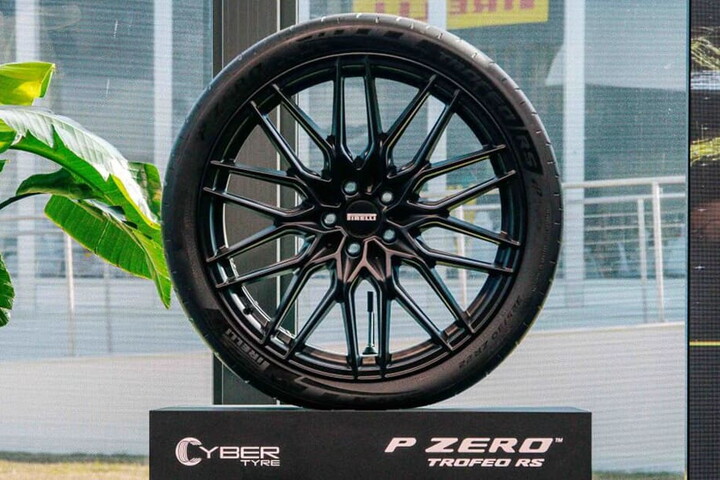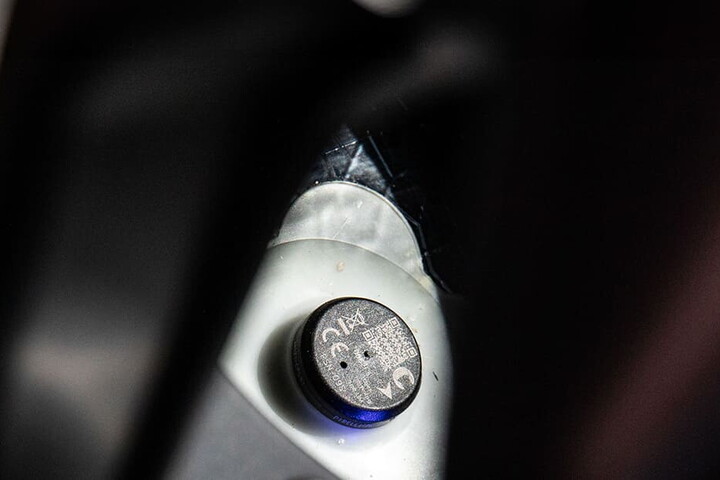The clearest evidence of the working relationship that exists between Pirelli and the University of Milano-Bicocca is undoubtedly found by speaking to researchers who, after completing their studies, begin working at the Research and Development Lab at Pirelli. Antonio Susanna and Luciano Tadiello are two perfect examples to tell us about how CORIMAV works.

After completing a BSc and then a Masters in Materials Science and Engineering at the University of Padova, Antonio decided to move to Milan to complete a Pirelli company PhD at the University of Milano-Bicocca - "One of the top thirty new universities in the world", as he himself describes it.
Luciano graduated in Industrial Chemistry from the University of Milan. "I saw something in the scholarship from Pirelli: if I hadn't had the company behind me, I wouldn't have done the PhD": the motivation for choosing a CORIMAV PhD.
Different paths and different stories, with CORIMAV as the common link: an experience which led both of them to becoming Pirelli researchers on advanced materials.
Q: What is the biggest difference between your work at university and at the company?
Luciano Tadiello: "The biggest difference is definitely the different obligations you have in your everyday work: at university you can work on different topics, but you have to do a lot of intensive, time-consuming work on the theory of the research, while if you're working for a company your efforts are always focused on the final application of the product and you also have to follow strict and well-defined delivery times."
Antonio Susanna: "At university the goal is to share information: that's why it's important to promote your work, organise meetings with international professors and get published as much as possible: the communication of the work you do is managed in a completely different way to in a company, where you're much more likely to work as part of a team. Every project is very closely linked to what your colleagues are doing: the work is multi-dimensional, though it always remains within the company. Outside of the company, because of company privacy and the importance of patents we are strictly forbidden from talking about our projects."
Q: Why did you choose to do a CORIMAV PhD?
L.T.: "After finishing my degree I started doing interviews with companies and I was sure that PhDs weren't looked highly upon in the selection phase. Unfortunately in Italy you often find yourself in this kind of situation during an interview. I then found out about the CORIMAV PhD: I heard about it from afriend who had finished her PhD before me - until then I had no idea about it at all. I thought that the Pirelli scholarship was something special: if I hadn't had the company behind me, I wouldn't have chosen to do the PhD."
A.S.: "At Padova the CORIMAV PhD is neither known nor sponsored. But when I found out that there was a great company like Pirelli behind it I had no doubts whatsoever. What's more, at the Bicocca University you are taught by some great professors. And the chance to complete a Pirelli PhD made the whole thing even more attractive: this way I would have the opportunity to improve myself not just in terms of research, but also to see how a large company works."
Q: How important is research on nanomaterials in the tyre industry?
L.T.: "In terms of compounds and tyres, we can say that research on nano materials is now very important. This field of research - even outside of the tyre industry - has produced a lot of results recently, like graphene, nanotubes: all these materials enter into the public knowledge, and there is now a really strong interest in using these types of materials in production. Some pioneering studies have helped us to understand the key to reinforcing a material is not so much in the particles themselves than in the interface which exists between the nano-particles and the tyre: so if you have a lot of small particles, the area of interaction between the nano-particle and the tyre is greater, meaning you can work in greater detail on the properties of the tyre."
A.S. "Nanomaterials and nanotechnology have become incredibly important for the industry in the last twenty years, because through nanoscales and nanodimensions it's possible to manage multiple properties. Taking a material at a macro or a nano level affects its optical, electric, thermal and structural properties: on a nano scale, you get a material with completely different properties to when you work with macro material. These studies have also helped us understand one aspect which is not immediately evident: an improvement in the quality of the environment. A piece of research in 1999 reported that because of tyre wear, in the United States alone approximately 10,000 tonnes of zinc oxide were dumped every year, causing damage to sea life. Nanomaterials have been able to improve the properties of the ingredients that make up the tyre, reinforcing it and as a consequence reducing the amount of zinc oxide used, while also maintaining the qualities of resistance and stability in the product. This is the point of the industry: often nanomaterials enable more effective and effective use of materials. All the companies who want to have a role to play in the new century have to understand nanotechnologies."
Q: Until now, what has given you greatest satisfaction in your work?
L.T. "Giving my list of ingredients to one of our suppliers and seeing my lab materials - which I made on a scale of 20 grams - produced by the tonne. It's still only being used as a test material, but the satisfaction from it is priceless: I synthesised it myself in the laboratory and now I see it being used in our Research and Development Centre."
A.S.: "Completing my doctorate research project, but also following the new PhD students and other projects. When you start a new research project, you develop as a person: all the knowledge you have accumulated over the years at university becomes a patch of earth for planting seeds, which then grow bigger and bigger during the PhD years. It's about personal growth and the growth of your research group, who you share information with. And then if you do a company PhD you might be lucky enough to see your material used in production."
Q: Would you recommend the path you have taken to a young student?
L.T.: "I would definitely say yes: if you're looking for something exciting and you want to be in a stimulating environment, in the middle of two things which have completely different missions like a university and a company, if you want to get involved, you have the opportunity of receiving a lot of input and finding a place where you can have the best of both worlds. So you have the opportunity of doing a new job of the highest quality, and which helps you get a grasp of aspects related to innovation and research and elements which are applicable and useful for industry."
A.S. "I would recommend it to any graduates to do a multidimensional PhD because it helps you grow as a person and helps other people develop too, as well as giving you the chance to discover new things which get published and become part of public knowledge. With Pirelli you have a great advantage: the possibility of going to a company and working with industrial machines and people from the company, understanding their goals and objectives. In this way you will be ready to enter the world of work."




